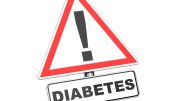
Long COVID’s most significant symptom, fatigue, severely impacts patients’ daily lives, according to a study by researchers at UCL and the University of Exeter. The health-related quality of life scores of long COVID patients in the study were lower than those of advanced stage cancer patients. The impact on daily activities was worse than in stroke patients and similar to Parkinson’s disease.
Long COVID Fatigue and Quality of Life Decline Worse Than Certain Cancers
A new study reveals that long COVID’s primary symptom, fatigue, has a debilitating impact on patients’ lives, comparable to severe kidney disease and advanced cancers, with potential social and economic implications. This underscores the need for focused resources to manage and understand the condition better.
Fatigue is the symptom that most significantly impacts the daily lives of long COVID patients, and can affect quality of life more than some cancers, finds a new study led by researchers at University College London (UCL) and the University of Exeter.
The research, published in BMJ Open and funded by the National Institute for Health and Care Research (NIHR), examines the impact of long COVID on the lives of over 3,750 patients who were referred to a long COVID clinic and used a digital app as part of their NHS treatment for the condition.
Patients were asked to complete questionnaires on the app about how long COVID was affecting them – considering the impact of long COVID on their day-to-day activities, levels of fatigue, depression, anxiety, breathlessness, brain fog, and their quality of life.
The researchers found that many long COVID patients were seriously ill and on average had fatigue scores worse or similar to people with cancer-related anemia or severe kidney disease. Their health-related quality of life scores were also lower than those of people with advanced metastatic cancers, like stage IV lung cancer.
Overall, the team found that the impact of long COVID on the daily activities of patients was worse than that of stroke patients and was comparable to that of patients with Parkinson’s disease.
Dr. Henry Goodfellow, who co-led the study alongside the late Professor Elizabeth Murray (both UCL Institute of Epidemiology & Health), said: “Up to around 17% of people who get COVID go on to develop long COVID*. However, the impact of the condition on patients’ day-to-day lives isn’t fully understood.
“Our results have found that long COVID can have a devastating effect on the lives of patients – with fatigue having the biggest impact on everything from social activities to work, chores and maintaining close relationships.”
Not only does long COVID negatively impact the lives of patients on an individual level, the researchers also believe that it could have a significant economic and social impact on the country.
In order to be referred to a long COVID clinic, a patient must have had symptoms in keeping with long COVID for at least 12 weeks after an acute infection.
Over 90% of long COVID patients using the app were of working age (18-65) and 51% said they had been unable to work for at least one day in the previous month, with 20% unable to work at all.
Meanwhile, 71% of patients were female. As working-age women make up a majority of the health and social care workforce, the impact of long COVID on their ability to function may add additional pressures to already stretched services.
Dr. Goodfellow said: “We hope that a greater understanding of the symptoms and impact of long COVID in these patients will help the NHS and policymakers to target limited resources by adapting existing services and designing new ones to better meet the needs of patients with long COVID.”
According to the Office for National Statistics, around 1.4 million people in the UK had symptoms of long COVID as of July 2022. Alongside fatigue, patients typically experience breathlessness, anxiety, depression, and brain fog.
However, this is the first study to report on the impact of the condition on day-to-day functioning and health-related quality of life in patients who have been referred for specialist rehabilitation in long COVID clinics across England.
Dr. Goodfellow said: “Our findings show that fatigue should be an important focus for clinical care and the design of rehabilitation services.
“Post-COVID assessment services should consider focusing on assessing and treating fatigue to maximize the recovery and return to work for sufferers of long COVID.”
Co-author Professor William Henley, of the University of Exeter Medical School, said: “Long COVID is an invisible condition, and many people are left trying to manage significant changes to how they can function. Shockingly, our research has revealed that long COVID can leave people with worse fatigue and quality of life than some cancers, yet the support and understanding is not at the same level. We urgently need more research to enable the development of evidence-based services to support people trying to manage this debilitating new condition.”
The research was carried out alongside partners at Southampton University, University of Exeter, Barts Health NHS Trust, University College London Hospitals NHS Trust, Royal Free Hospital, and Living With Ltd.
Study limitations
As the patients involved in the study were those under treatment, it is likely that they had worse symptoms than those who weren’t. However, researchers don’t know details about those long COVID patients that have chosen not to seek help for their symptoms.
Reference: “Impact of fatigue as the primary determinant of functional limitations among patients with post-COVID-19 syndrome: a cross-sectional observational study” by Sarah Walker, Henry Goodfellow, Patra Pookarnjanamorakot, Elizabeth Murray, Julia Bindman, Ann Blandford, Katherine Bradbury, Belinda Cooper, Fiona L Hamilton, John R Hurst, Hannah Hylton, Stuart Linke, Paul Pfeffer, William Ricketts, Chris Robson, Fiona A Stevenson, David Sunkersing, Jiunn Wang, Manuel Gomes, William Henley, Living With Covid Recovery Collaboration, 7 June 2023, BMJ Open.
DOI: 10.1136/bmjopen-2022-069217









I think you mean, Vaccine side effects, not “long covid”
Ditto!
The only “long Covid” there is, is when Fauci sticks his “long Covid” up your overly credent behind.
Tired of cancer?
What a dreadfully flip headline on yet another piece of junk research seeking to perpetuate the myth of long Covid. Shame on you.
Long covid is a grift. Only lazy people claim they have it as far as I can tell.
Oh sweet COVID please display yourself in a microscope slide or please just stop it at this point…..nobody believes anymore